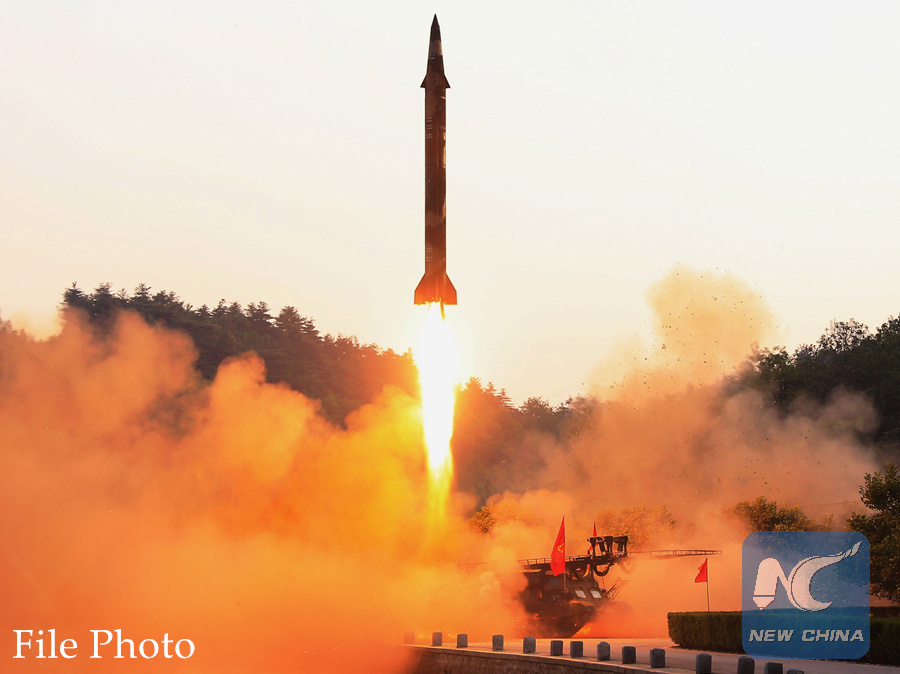
Photo provided by Korean Central News Agency (KCNA) on May 30, 2017 shows the test-firing of a ballistic missile. (Xinhua/KCNA)
MOSCOW, July 31 (Xinhua) -- Russia on Monday called on all parties interested in settlement on the Korean Peninsula for restraint and establishment of a dialogue after a new missile launch by the Democratic People's Republic of Korea (DPRK).
"We call on all parties involved to refrain from any steps which could lead to further escalation of tension in the region," the Russian Foreign Ministry said in a statement.
The statement also said Russia was concerned by the missile launch, which directly violated the relevant resolutions of the U.N. Security Council.
The DPRK test-fired on Friday a missile, which the country described as an intercontinental ballistic missile (ICBM) called Hwasong-14, from Jagang province in the central northernmost part of the country, according to South Korea's Joint Chiefs of Staff (JCS).
At the same time, Moscow was concerned by the military activities of the U.S., South Korea and Japan around the Korean Peninsula with the deployment of elements of the U.S. global Anti-Ballistic Missile system in South Korea, it said.
South Korean President Moon Jae-in on Saturday ordered his aides to consult with their U.S. counterparts on the deployment of four more mobile launchers of the U.S. Terminal High Altitude Area Defense (THAAD) on top of the two delivered previously, the South Korean JSC said.
On Friday, U.S. Secretary of State Rex Tillerson said China and Russia as the "principal economic enablers" of DPRK's nuclear weapon and ballistic missile development program bore "unique and special responsibility for this growing threat to regional and global stability."
Russia's foreign ministry recalled that Russia and China had developed a joint "road map," which excluded the use or threatened use of force and involved a comprehensive solution of all problems of the Korean Peninsula, including nuclear, through the political and diplomatic way by means of dialogue without preliminary conditions.
"We suggest all interested parties immediately begin a comprehensive discussion about the establishment of collective efforts to resolve the situation on the basis of the ideas contained in the 'road map'," the statement said.

